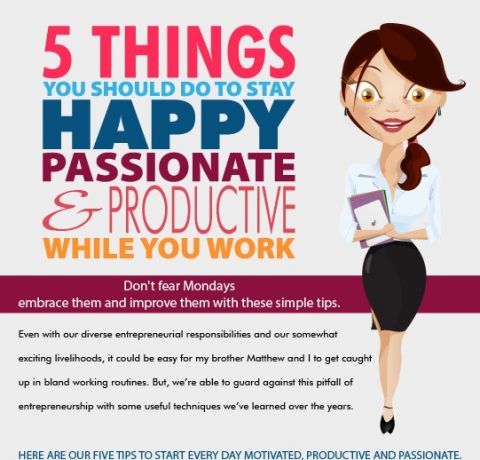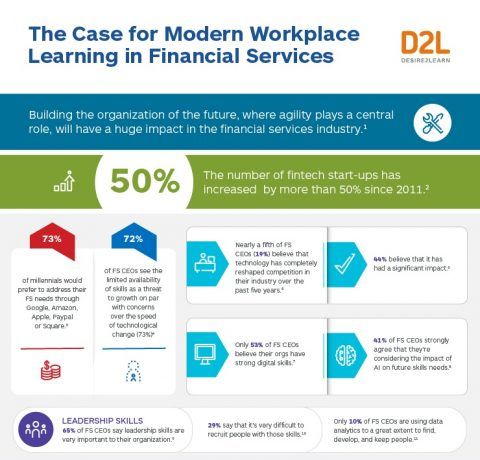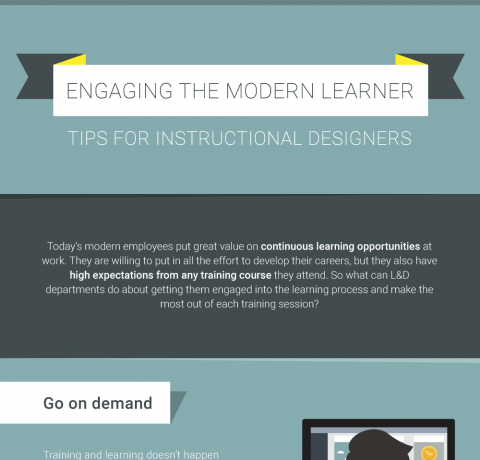Why Soft Skills Are Necessary Infographic
Higher education is crucial to most career paths, but it is not the end of the road. Lifelong learning is important for getting your career where you want it to be, and soft skills should be the first thing on your mastery list. Soft skills are the things you aren't necessarily learning in school- things like how to work together as a team, how to work together with people from other cultures, and having good social skills. Your resume and Alma Mater still matter, but you have to be able to set yourself apart from other job candidates. Some positions might receive hundreds of resumes, interview a dozen candidates, and choose one person for the job. How are you going to make yourself stand out? Learn more about staring out from the crowd in your next job search from the Why Soft Skills Are Necessary Infographic!
Since 1980, the Number of U.S. Jobs Requiring More Education, Experience, and Training Have More Than Doubled Than Jobs Requiring Less Preparation
68% increase in jobs requiring more preparation
- Strong social skills are even more critical to finding a career than hard skills
- 83% increase in jobs needing strong interpersonal, management, or communication skills
- 77% increase in jobs needing strong analytical skills, like critical thinking or computer skills
- Yet, Americans are still skeptical that college is the way to prepare for the working world
- 16% of adults think a bachelor’s degree prepares students “very well”
- 21% think it prepares students “not too well”
- 8% believe it prepares students “not well at all”
72% of people believe that individuals bear most of the responsibility for acquiring the skills to succeed in the job market
Having a Strong Personality Is Just as Important as the Right Education
- Did you know that the top 5 things employers look for have almost nothing to do with your degree
- Leadership—80.1%
- Being a great team player—78.9%
- (Written) communication skills—70.2%
- Problem solving—70.2%
- (Verbal) communication skills—68.9%
- But some companies are still known for snatching up the brightest minds from the “best” colleges
- > 95% of Facebook employees went to a top 200 US college
- > 80% of Google employees went to a top 200 school
- > 70% of Morgan Stanley employees went to a top 200
- > 60% of Microsoft employees went to a top 200 school
So, how do you show employers you have the “It” factor?
It’s Never Been More Important to Find the Right Fit
- Before you get the job
- Do your Company Culture homework
- 64% of Millennials would rather work for a company for 40K that they believe in, than for 100K at a job they find boring
- 70% of employees who lack confidence in senior leaders say they aren’t fully engaged in their work
- Finding a place you love will pay off in the long run
- Make a killer resume that can’t be ignored
- ~250 resumes are submitted for every corporate job opening
- Only 4-6 will be interviewed
- Only 1 will be offered the job
- Interview the interviewer
- 33% of interviewers know within 90 seconds if they would hire the applicant due to non-verbal cues
- 47% of interviewers say applicants have little to no knowledge about the company
- Demonstrate your personality by asking relevant questions know and showing the company is a great fit for you
- Whistle while you work
- Be known for something specific
- Meeting the standards isn’t enough—go above and beyond expectations
- Having a personal touch or specific skill will get you noticed and move you ahead
- Make your own side project
- Excelling at a personal endeavor that helps your company shows you’re an innovator
- Building a personal “unique selling proposition” will make you indispensable to your workplace
- Work harder than everyone else
- Very few people work as hard as they possibly can
- Working harder than everyone else is the easiest way to get ahead
- Be known for something specific
- Do your Company Culture homework







You can adjust your cookie preferences here.